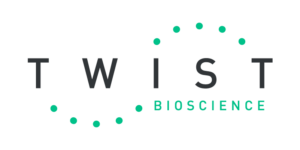Synthetic Biology for Health and Sustainability
11–13 March 2026
Wellcome Genome Campus, UK and Virtual
Towards improving human health and sustainability with synthetic biology technologies
Summary
Synthetic biology continues to be recognised globally as a driving force for the emerging ‘bioeconomy’. Our 3rd conference in this series will build on the success of previous meetings, offering a platform to highlight cutting-edge research and innovation that drive forward human health and planetary sustainability.
This year’s programme will explore a broader scope of topics reflecting the evolving landscape of synthetic biology. Key themes include innovative approaches for cell engineering, the scaling up of synthetic biology applications from lab to industry, and the integration of computational methods, including AI and machine learning, to enhance biological design and predictive capabilities. We will also delve into efforts towards sustainability, including the engineering of plants to improve agricultural resilience and resource efficiency, as well as advances in engineering biology for health, such as personalised medicines and low-cost diagnostics.
The meeting will bring together a multidisciplinary audience, spanning synthetic biology, biotechnology, genomics, computational biology, plant and medical sciences, alongside representatives from the pharma and biotech industries. Attendees will have valuable opportunities to network and initiate collaborations across sectors.
The programme will include:
- Invited talks from global leaders in synthetic biology,
- Selected short talks, poster pitch talks, and poster sessions drawn from submitted abstracts, promoting dynamic exchanges and forward-looking discussions,
- A “Meet the Editors” session, offering attendees the opportunity to meet the editors of leading journals and gain insights into the publication and peer-review process.
Programme
The conference will start at approximately 13.00 on Wednesday, 11 March and close at approximately 13.00 on Friday, 13 March 2026. See the time where you are here.
Discussions will focus on a variety of exciting topics, including:
- Approaches for cell engineering
- Scaling up synthetic biology
- Computational approaches for synthetic biology
- Towards sustainability
- Materials and microbes for health
- Engineering biology for health
Organisers and speakers
Scientific programme committee

Sonja Billerbeck
Imperial College London, UK

Barbara Di Ventura
University of Freiburg, Germany

Tom Ellis
Imperial College London, UK

Katie Galloway
Massachusetts Institute of Technology, USA

Marc Güell
Pompeu Fabra University, Spain
Confirmed speakers

Kristala Jones Prather (keynote speaker)
Massachusetts Institute of Technology, USA

Luis Serrano (keynote speaker)
Centre for Genomic Regulation (CRG), Spain

Caleb Bashor
Rice University, USA

Priscilla S. Briquez
University of Freiburg, Germany

Zibo Chen
Westlake University, China

Tobias Erb
Max Planck Institute for Terrestrial Microbiology, Germany

Cleo Kontoravdi
Imperial College London, UK

Debora Marks
Harvard University, USA

Nicola Patron
University of Cambridge, UK

Sai Reddy
ETH Zurich, Switzerland

Anna Rising
Karolinska Institutet, Sweden

Edda Schulz
Max Planck Institute for Molecular Genetics, Germany

Claudia Vickers
Queensland University of Technology/ BioBuilt Solutions, Australia

Harris Wang
Columbia University, USA
Organisers – Wellcome Connecting Science

Nagehan Ramazanoglu Bahadir
Programme developer

Lucy Criddle
Events organiser
Registration and accommodation
Registration deadline: 9 February (in person) | 2 March 2026 (virtual)
| In-person Registration |
Fee |
| Student/trainee | £410 |
| Academic/non-profit organisation | £515 |
| Healthcare professional | £515 |
| Commercial/for-profit organisation | £620 |
| Onsite accommodation | £228 |
The in-person registration fee includes:
- Full access to scientific programme: oral and poster presentations, and networking on campus
- Access to the online conference portal to network with online participants
- Meals (lunch and dinner) and refreshments during the conference. Breakfast will be provided for delegates who have booked onsite accommodation.
- Recordings of the live-stream sessions, which will be available ‘on-demand’ for four weeks after the event ends
| Virtual Registration | Fee |
| Delegates from LMICs* | Free |
| Student/trainee | £55 |
| Academic/non-profit organisation | £105 |
| Healthcare professional | £105 |
| Commercial/for-profit organisation | £165 |
Virtual registration fee includes:
- Access to the virtual event portal (Log in details will be emailed a few days before the event starts)
- Live-stream sessions, including posters and online networking channels
- Recordings of the live-stream sessions, available ‘on-demand’ for four weeks after the event ends.
* To promote more inclusive scientific discussions with international colleagues at our conferences, virtual delegates based in Lower and Middle-Income Countries can register for free (see list of countries here).
If you are an editor or journalist, please contact the conference organiser for more information about the discounted fee or media pass.
Accommodation
Booked accommodation is for the nights of 11 and 12 March 2026.
Please note: there is limited onsite accommodation and this will be allocated on a first-come, first-served basis; therefore, early registration is recommended.
If you wish to book campus accommodation either side of the conference dates, please contact the Hinxton Hall Conference Centre directly.
Accommodation services phishing scam – please be vigilant. More information.
Travel visas
Please check the UK government website for advice on whether you will need a visa or an electronic travel authorisation and how to obtain one: https://www.gov.uk/standard-visitor.
Confirmed attendees requiring a letter to support a visa application should contact our events team.
Financial assistance
Bursaries
Bursary deadline: 1 December 2025
Wellcome Connecting Science offers registration bursaries (usually up to 50% of the registration fee) to those who would benefit from attending the conference but face financial barriers to attending events.
Priority will be given to PhD students/trainees, applicants from lower and middle income countries, or those from underrepresented/minoritised groups. Other early career researchers will be considered if funds allow.
To apply for funding support, please register and then select that you want to apply for a bursary. This will direct you to the online application form. Please explain why you need support and how you will benefit from attending the conference. Once you have submitted the application form, you will be emailed an abstract portal link. Please use this to submit your abstract before bursary deadline.
Applications without abstracts will only be considered in exceptional circumstances.
Additional funding opportunities
Visit our support page for information on financial support, including carer grants to help delegates with the costs of caring for children or dependent family members while attending a course or a conference.
Abstracts
Abstract deadline: 11 January 2026
We welcome abstracts from all areas relevant to the main themes of the meeting, for both oral and poster presentations. Several oral presentations will be chosen from the abstracts submitted. Presenters of oral presentations are expected to be onsite for the duration of the conference.
To submit an abstract, you must first register for the conference. Once your registration is completed, you will be emailed a link to submit to the abstract submission portal. If you wish to edit your abstract following submission, please use the link in the abstract acknowledgement email.
All abstracts must be submitted and, if desired, edited by the deadline. The scientific programme committee will then assess your abstract and you will be notified about 2 weeks after the deadline whether you have been selected to present an oral or poster presentation. If you require acknowledgment that your abstract has been accepted earlier than this, please contact the event organiser.
Poster boards onsite will accommodate 118 cm high by 84 cm wide (A0-portrait) of printed material. Accepted abstracts will appear in the conference programme book; poster board numbers will be allocated at the conference.
All those accepted for a poster presentation will also have the opportunity present a ~1 min ‘poster pitch’ summarising their work.
Sponsors
With thanks to our sponsors:



If you are interested in supporting this meeting, please contact us.
For more information about the benefits of having a presence at this meeting, see our sponsorship page.
Keynote lecture from 2024 meeting
Synthetic Biology 2024: Harnessing plant metabolic diversity for food and health applications
Keynote lecture by Anne Osbourn, John Innes Centre, UK
Testimonials
Feedback from previous conferences in this series:
“I really enjoyed the sustainability part of the conference… It was an eye-opener to many more possibilities and ideas. A holistic approach that should be encouraged in many more conferences.”
“I met some excellent contacts and overall really enjoyed the interaction with the other delegates and learned a lot of new things, including techniques and ideas that sparked thoughts for my own work.”
“The standard of all of the talks was very high, the science was exciting.”
“I appreciated having plenty of time for networking – extremely important – and ample time given to the poster session, at which it was wonderful to see everyone engaged.”

